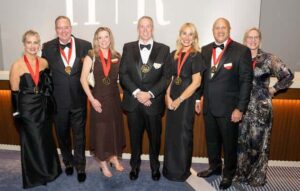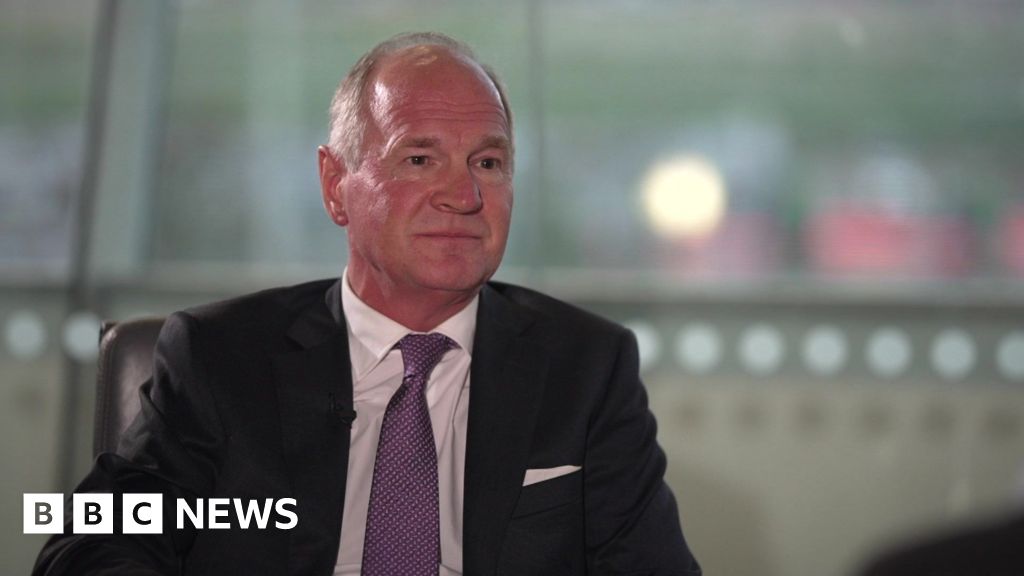Fifteen years passed between the time L. Kevin Cox, most recently the CHRO of GE, was named a Fellow of the National Academy of Human Resources and when he was elevated to the organization’s most prestigious HR leadership honor: Distinguished Fellow, a designation bestowed at an HR star-studded event in New York City in November.
During that timeframe, Cox says, the HR profession has undergone “substantial, substantial” transformation—which has markedly changed what exceptional HR leadership looks like in practice.
It’s change that has been in motion since Cox entered the profession more than 35 years ago. In the 1980s, when Cox was working his way through HR leadership roles at PepsiCo, the HR function was in its “coming-of-age” phase—working toward the seminal “seat at the table.” Approaching the turn of the century, HR shifted from the “personnel” focus to the more strategic, less transactional HR functions of today.
And since the mid-aughts, the profession has become “a more credible business voice in the boardroom, in the executive suite.” Cox saw this in action when he helmed HR at American Express during the Great Recession and led the function at GE during the pandemic. That strategic leadership is elevating the profile of the profession.
“The single biggest difference from when I became a Fellow [in 2009] to now is that the interest from boards of directors in what HR heads do has never been higher,” he says.
Boards are keenly focused on HR mandates like culture change, executive succession planning and the development of new ways of working.
“Those have become board issues in recent history,” he says, “and I think that raises the expectations for heads of HR and their functions.”
HR leaders today have to consider many more stakeholders than they used to—it’s not just employees HR needs to focus on, Cox notes, but boards and investors, as well as external influences like the press and political figures.
“The stakeholder map has gotten much more complicated, and HR has to spend more time there,” he says.
To effectively meet the expectations of and pressures from that diversifying stakeholder map, Cox notes, HR needs to lean more into business acumen.
“How do you understand the business, and how does your work support the business? That’s always been important, but it’s really important right now,” he says. “We’re looking at HR leadership that is much more literate about and influential in business than used to be the case.”
A career built around change
Expectations for HR leadership performance are rising as the pace of change accelerates—creating a challenging landscape for HR leaders.
Effectively navigating change efforts within a company can bring career-defining lessons, says Cox, who names leading change as the thread connecting his greatest contributions to organizations throughout his decades in the HR profession.
“I’m attracted to change—not for the sake of change, but for the challenge,” he says. “That promise and opportunity, those Mount Everest things—Can you? Can you make it happen?”
For instance, Cox took on the CHRO role of the Pepsi Bottling Group in 1999 when it spun off from PepsiCo, where he spent the previous decade. In his six years in the position, Cox led culture transformation efforts for the new company.

Transformation took on a digital focus when he became CHRO of American Express in 2005, driving the people strategies to help the financial services company—then a juggernaut in direct mail marketing—adapt to more digital-oriented processes.
His last chapter, at GE, was “all about change—transforming a very, very sick, broken company” into three “really promising, very successful” organizations, Cox says: GE Aerospace, GE HealthCare and GE Vernova.
When he and the then-new CEO Larry Culp arrived, they were met with significant inertia. “I may have learned more about physics than HR at GE,” he laughs.
The company, founded in 1892, was steeped in long-accepted practices, he says, and it wasn’t easy to get the ball rolling on the culture change needed to move the needle on performance. Working closely with Culp was integral.
“To be a partner to the CEO to change the culture of GE, that was the most important lesson to changing the performance of GE,” Cox says. “Inertia is powerful but if you can start to get that culture to change—start to get that big, powerful, heavy rock to roll, momentum is equally powerful.”
As he witnessed corporate culture transformation throughout his career, Cox says, he learned the importance of focus and patience.
“When you see culture change happen, you take it with you for the rest of your life. The confidence I was able to take with me from Pepsi and from American Express—it builds,” he says. “You don’t get cocky, but you do get confident. You get to a point where you say, ‘Wait for it. It’s going to happen.’ That’s really a function of experience.”
Related: Learn more from the 2024 Fellows of the National Academy of Human Resources.
Credit: Source link










